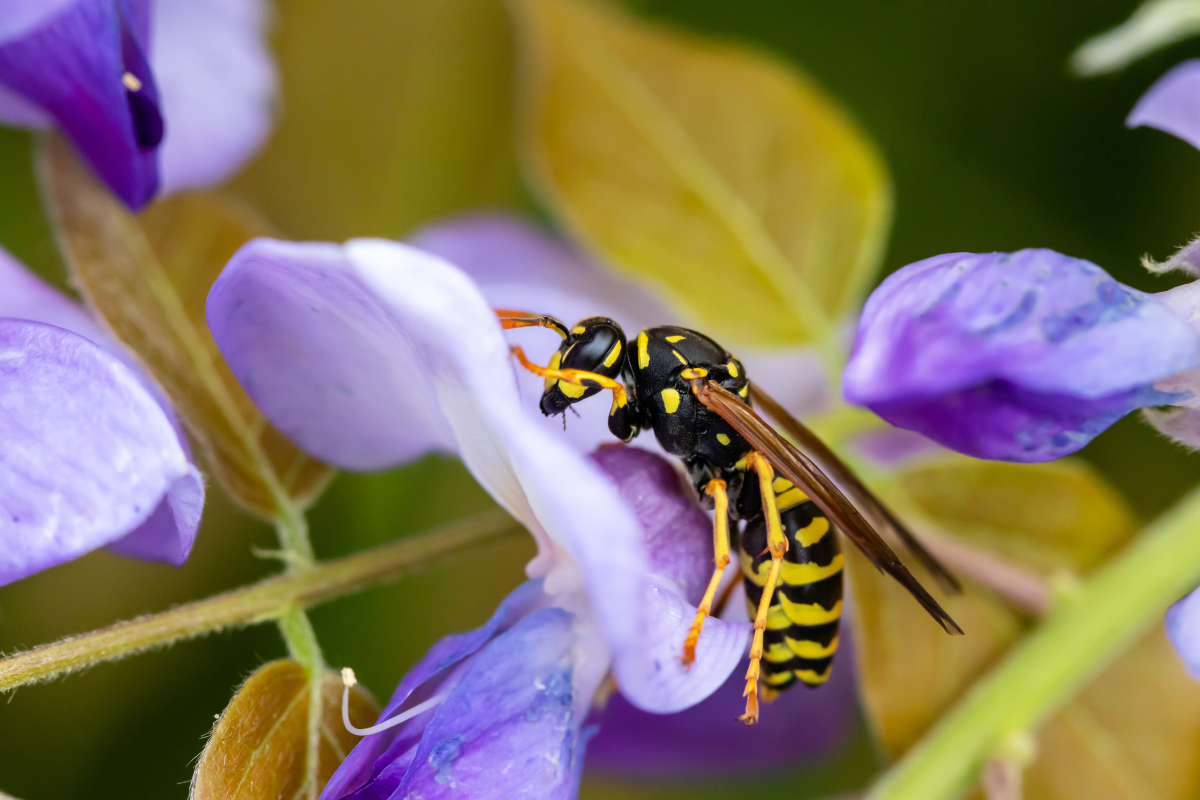
Bees, butterflies, bats, moths, wasps and other pollinators are essential to our existence. Without their services, much of our food supply, agricultural economies and biodiversity would collapse. Despite their vital roles, many pollinator species are under threat. Environmental pollution, habitat loss, disease and parasites have all contributed to the decline in populations of pollinators. On World Bee Day 2024, we highlight some of our recent research, with partners, on plant-pollinator interactions, pollinator health and threats faced by pollinators – with implications for conservation, precision pollination technologies and broader ecosystem health.
Bee health
All living systems are attacked by disease-causing microorganisms (pathogens), resulting in constant interactions between pathogens, hosts and their environments. Crithidia bombi is a globally important parasite of bumble bees, affecting reproduction, survival and learning. A recent study by NRI scientists and partners in the USA reported that feeding on spikey pollen from flowers in the daisy family (Asteraceae) helps bumble bees clear their gut parasites. The authors found that including Asteraceae pollen in pollinator diets may reduce disease loads in bumble bees without negative impacts on reproduction and survival. This study sheds light on the pathogen-suppressing effect of sunflower pollen against C. bombi and could influence efforts to improve bee health and pollinator communities more widely. It further underscores the importance of understanding the mechanisms that drive plant antipathogenic properties. This could inform management strategies to reduce disease in vulnerable animal populations.
An earlier study by NRI’s Professor Philip Stevenson and colleagues reported that bees naturally activate ‘medicinal’ compounds in linden and strawberry tree nectar to protect themselves from parasite infections. This research provides new possibilities for protecting bee health. It draws on the knowledge that pollinators, including bees, have diverse communities of microorganisms (microbiome) in their guts that help them withstand diseases or produce essential nutrients. The study will be useful in informing bee conservation efforts through a deeper understanding of how microbiomes affect pollinator health. Philip Stevenson, Professor of Plant Chemistry at NRI said: ‘By revealing the quality and value of natural nectar compounds in helping protect bees from disease we are able to better understand our floral landscapes not only in terms of their provision of food but also how they are able to support healthy populations and communities of pollinators.’
Addressing nuances in the pollinator decline narrative
Messaging about protecting pollinators has gained traction in recent years following increasing evidence of insect declines. This messaging is however mostly focused on honeybees and bumble bees regardless of the value and status of other pollinators.
Despite increasing evidence of insect decline, Professor Stevenson has noted the need to appreciate nuances in the data. In a presentation to a parliamentary inquiry into insect decline and UK food security, he told MPs that honeybee keeping in urban landscapes, especially in London, is unsustainable in most locations and imposes severe competition on wild insects. His presentation was based on evidence from a study published in the journal Plants, People, Planet.

In the study, Prof Stevenson and colleagues argued that bee conservation initiatives often prioritise the western honeybee, overlooking pollinators like wild bee species which can provide more effective pollination services than honeybees. It also dispels the common misconception that keeping honeybees has an environmental benefit and conserves biodiversity as honeybees are not in decline, are not at risk and are primarily domestic animals. The study emphasised the importance of clearer messaging about biodiversity to avoid inadvertent negative consequences of conservation actions like low diversity tree planting and unsustainable levels of urban beekeeping.
All these efforts reflect NRI’s continuing efforts to generate fundamental knowledge and empirical evidence to foster a mutually beneficial co-existence with pollinators and other species that support our ecosystem.

